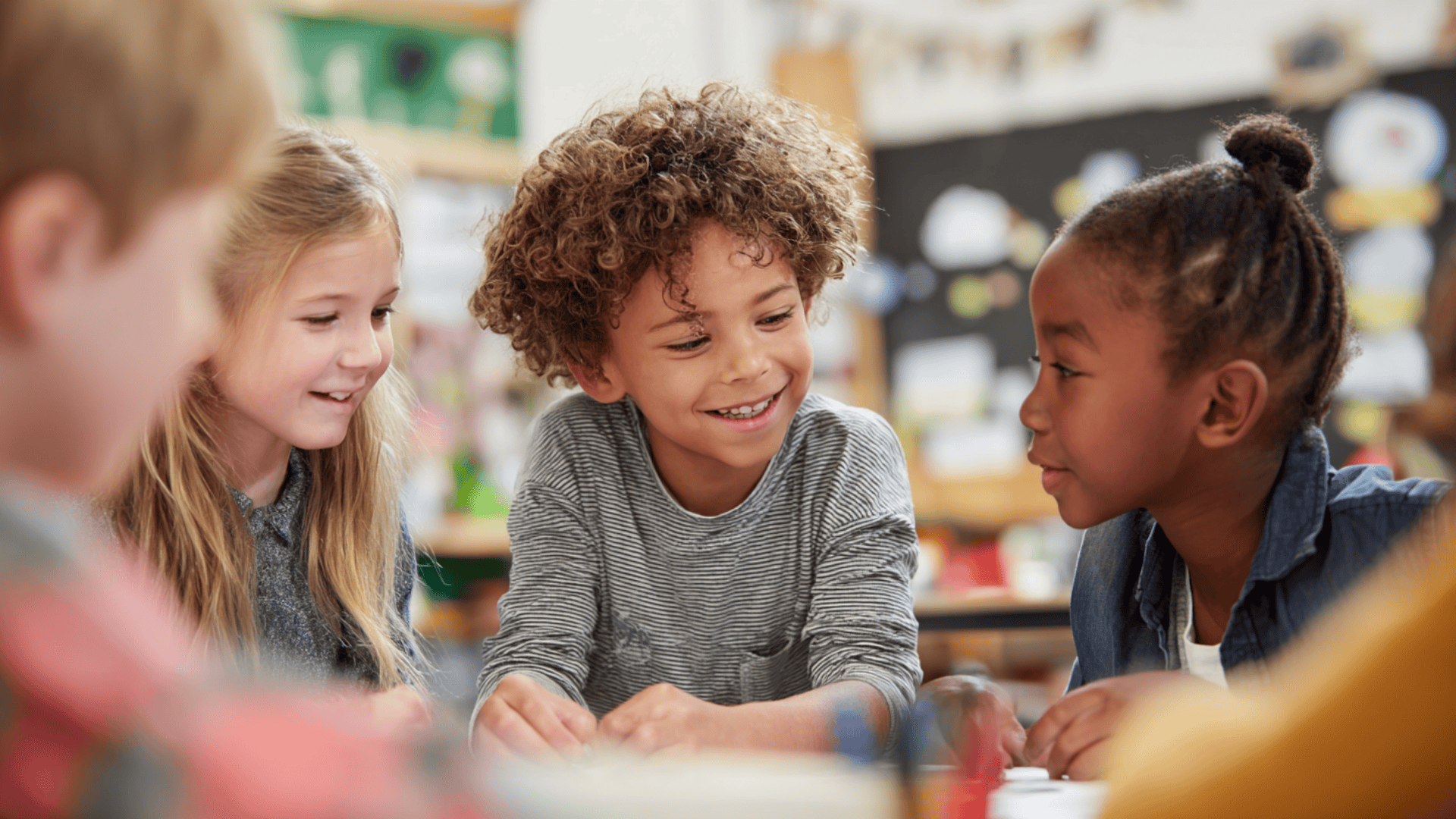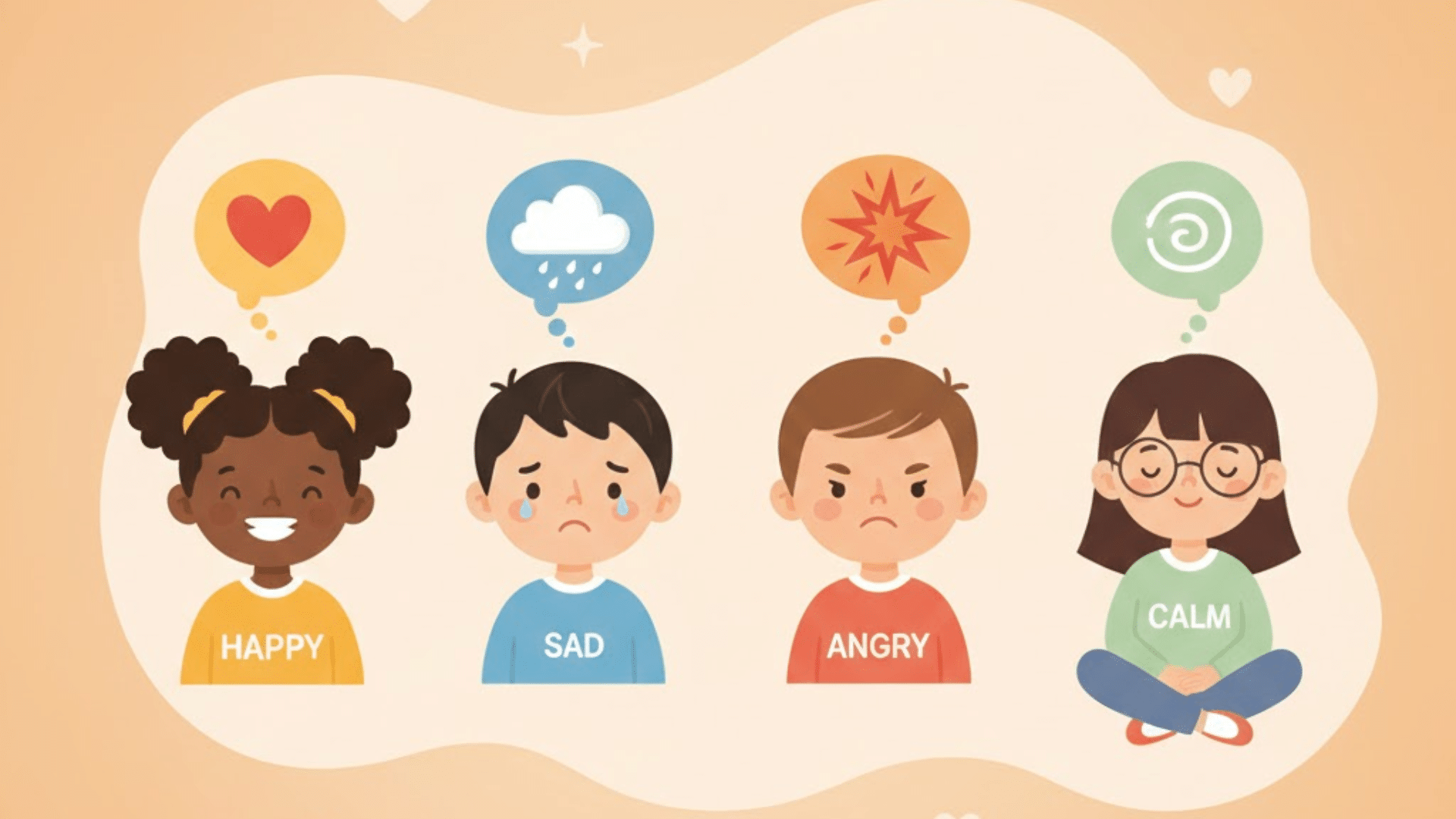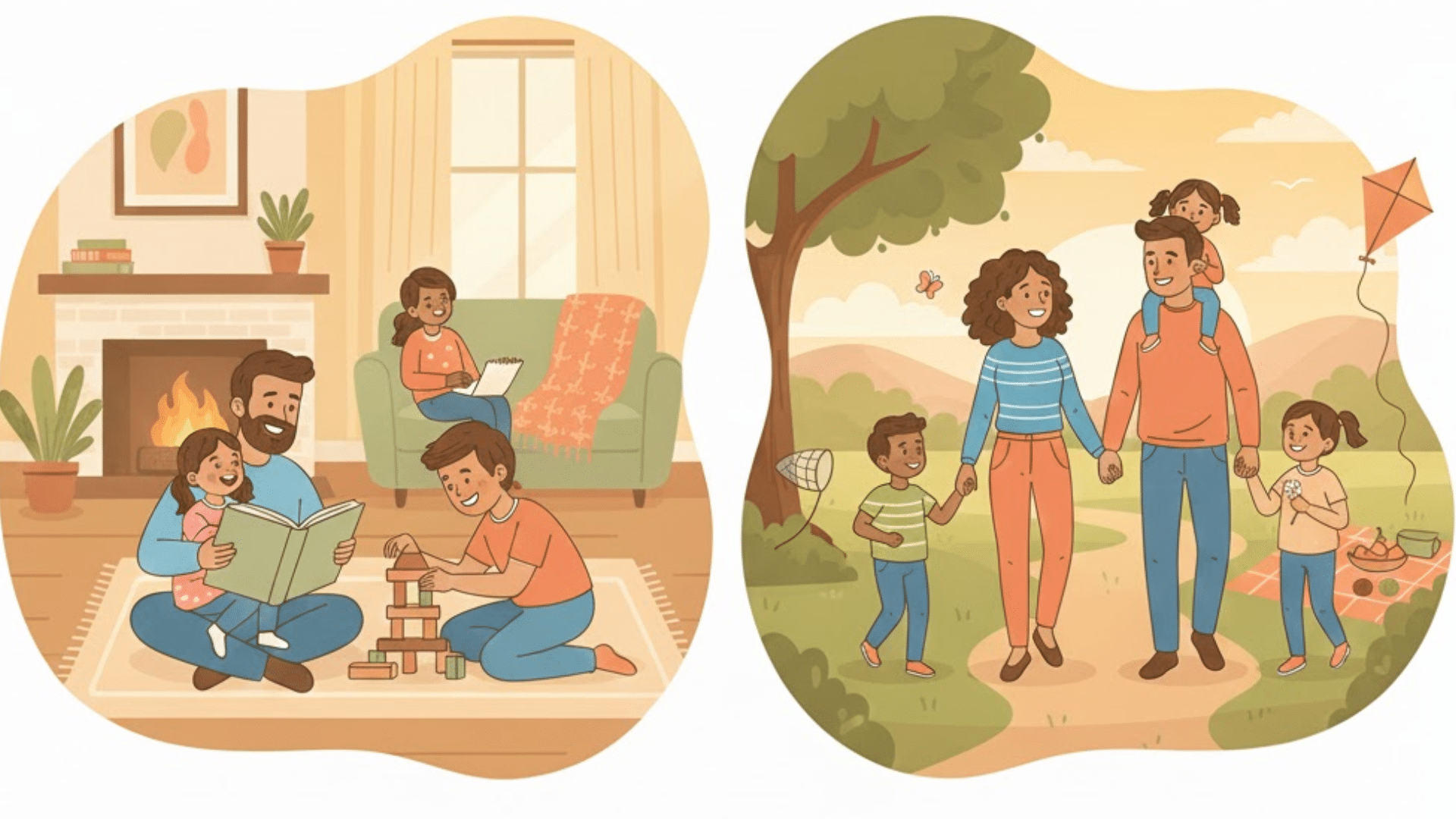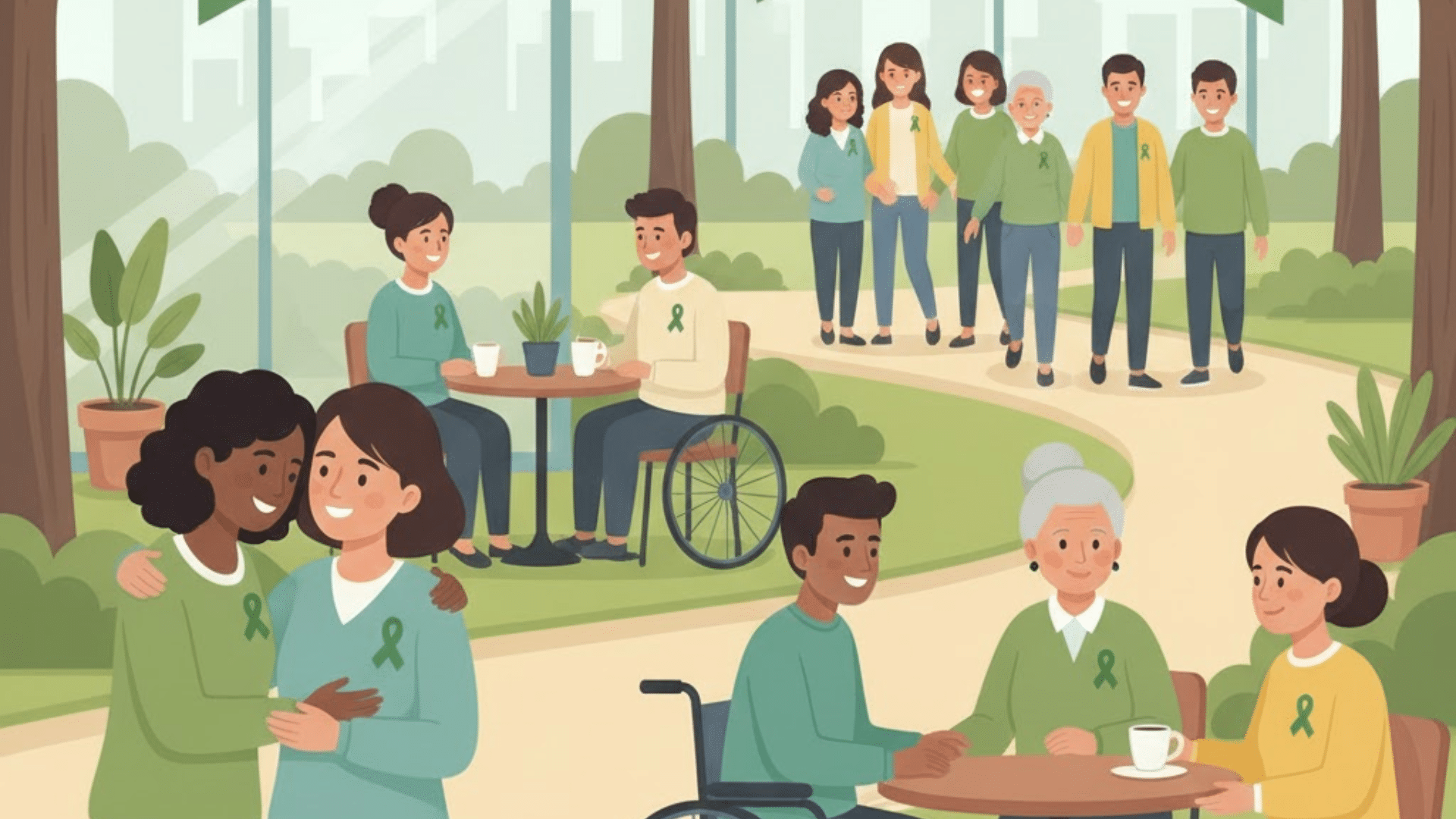Why do some children seem to make friends effortlessly while others find social situations more challenging? The answer often lies in their social skills: the everyday abilities that help kids build meaningful connections.
By supporting these behaviors early, parents and teachers help children regulate their emotions while also building self-assurance that supports healthy social development.
In this blog, you’ll find simple strategies, engaging activities, and helpful resources that parents and educators can use to strengthen children’s social growth at home, in school, and in the community.
What are Social Skills?
Social skills are the ways children communicate, share, and connect with others. They include listening, taking turns, showing kindness, and expressing feelings respectfully.
Strong social skills help kids make friends, work well in groups, and handle emotions with confidence at home, in school, and beyond.
Why They Matter
- Builds confidence: Kids who communicate well feel more secure in social and classroom settings.
- Improves teamwork: Cooperation and listening make group activities smoother and more enjoyable.
- Supports learning: Sharing ideas and following directions improve participation and focus in school.
- Encourages empathy: Understanding others’ feelings helps prevent conflict and strengthens friendships.
- Promotes emotional health: Strong social bonds reduce stress and prevent feelings of isolation.
- Teaches problem-solving: Respectful communication helps children handle disagreements calmly.
- Shapes positive identity: Feeling accepted and capable builds a healthy self-image over time.
Key Social Skills Kids Need to Learn

Children pick up many skills as they grow, but some are especially important for building strong relationships. These core skills help them connect, understand others, and thrive in group settings:
1. Communication Skills
Communication means expressing ideas clearly and understanding others through tone, words, and body language. Parents and teachers can support this skill by modeling meaningful conversations and asking open-ended questions.
Tools like storytelling circles or communication cards give kids structured ways to practice sharing thoughts. Strong communication builds confidence in expressing needs and feelings.
Activities such as the Topic Game and Improvisational Stories further strengthen vocabulary, creativity, teamwork, and self-expression.
2. Listening Skills
Listening is about paying full attention and responding thoughtfully. Adults can guide this by practicing listening games and encouraging children to retell what they heard.
Audiobooks and memory games strengthen focus and attention, while good listening helps kids build trust with peers. Strong listening prepares children for learning in the classroom and helps them feel included in groups.
Activities such as Simon Says, Rhythm Games, and Retell-a-Story exercises make listening fun while improving focus and cooperation.
3. Sharing and Cooperation
Sharing and cooperation show children how to consider others’ needs and work toward common goals. Parents and teachers can encourage this with paired tasks, group projects, and collaborative play.
These skills help kids form lasting friendships and learn responsibility. Cooperative activities also build respect for teamwork and fairness in daily interactions.
Activities such as Roll the Ball, the Building Game, and Community Gardening teach children fairness, patience, and collaboration in everyday play.
4. Conflict Resolution
Conflict resolution teaches kids to manage disagreements calmly and respectfully. Caregivers can nurture this by modeling negotiation, compromise, and positive language.
These skills help children handle challenges in healthy ways. Learning conflict resolution also gives children tools to express their emotions without aggression.
Activities such as EmotionCharades, Productive Debate, and Problem-Solving Charts let children practice recognizing feelings and resolving issues constructively.
5. Respect for Boundaries and Diversity
Respecting boundaries and diversity means valuing personal space and appreciating differences. Parents and teachers can help this by discussing privacy, celebrating traditions, and modeling respectful behavior.
These lessons build kindness and inclusion in daily life. By understanding diversity, children grow more empathetic and accepting of others.
Activities such as Expression Mimicking Games, Community Gardening, and Multicultural Storybooks help children learn to appreciate diversity and respect others’ boundaries.
6. Developing Positive Relationships
Developing positive relationships is about trust, kindness, and empathy. Adults can support this by showing kids how to care for others and encouraging empathy in daily routines.
These skills build belonging and strengthen friendships. Building positive bonds also helps children feel supported and more confident socially.
Activities such as Play Pretend, Playing with Characters, andTeam-Building Challenges give children safe opportunities to practice kindness, empathy, and supportive behavior.
7. Making New Friends
Making new friends requires confidence and the ability to connect with others. Parents and teachers can help by role-playing introductions and encouraging group participation.
These skills help children feel comfortable in new situations. Friendships also provide chances for kids to practice empathy and cooperation.
Activities such as the Name Game, Scavenger Hunts, and Icebreaker Games help children bond with peers and build trust while forming friendships.
8. Handling Social Interactions
Handling social interactions includes greetings, joining groups, and responding politely. Adults can support this by setting expectations, offering feedback, and using role-play.
These skills prepare kids for real-world situations and polite exchanges. Practicing interactions also helps children gain confidence in group settings.
Activities such as Step Into Conversation, Play Pretend, andConversation Cards give children structured ways to practice everyday manners.
9. Modeling Good Social Behavior
Modeling good social behavior shows children how to act with kindness, gratitude, and patience. Parents and teachers can guide this by consistently using polite words and handling challenges calmly.
These examples encourage kids to copy positive actions. When adults demonstrate respect, children are more likely to repeat it with peers.
Activities such as Expression Mimicking Games, Roll the Ball, and Gratitude Talks help children practice empathy, fairness, and positive routines.
10. Positivity
Positivity helps children approach challenges with optimism and resilience. Caregivers can encourage this by focusing on effort, promoting gratitude, and modeling hopeful attitudes.
These skills help kids manage setbacks and stay motivated. Positive thinking also builds stronger emotional health and confidence.
Activities such as Improvisational Stories, Team Sports, and Gratitude Journals help children practice encouragement, creativity, and positive thinking.
11. Respecting Personal Space
Respecting personal space helps children understand comfort, safety, and boundaries. Parents and educators can show this by giving examples in daily life and modeling polite ways to ask for closeness.
These lessons teach respect and self-control. Respecting space also creates safer and more comfortable interactions with peers.
Activities such as the Staring Contest, Community Gardening, and Puppet Play help children practice awareness and respect for others’ space.
12. Eye Contact
Eye contact shows confidence and respect in communication. Caregivers can support this by encouraging kids to look at the speaker during greetings, stories, or conversations.
These skills strengthen connection and understanding. Practicing eye contact regularly helps children feel more comfortable in group interactions.
Activities such as the Staring Contest, Virtual Playtime, and Eye Contact Challenges make practicing eye contact engaging and fun.
13. Patience
Patience teaches kids to wait calmly without frustration. Parents and educators can encourage this by modeling calm behavior and rewarding kids when they wait their turn.
These lessons help children manage emotions and build self-control. Patience also supports emotional growth by teaching kids to handle delays with maturity.
Activities such as Roll the Ball, Token Stack, and Planting Seeds give kids structured practice in patience with visible results.
14. Working With Others
Working with others shows children the value of collaboration and teamwork. Parents and teachers can encourage this through group problem-solving tasks, shared projects, and community activities.
These skills build responsibility and cooperation. Collaboration also helps children learn to appreciate different strengths within a group.
Activities such as the Building Game, Team Sports, and Puzzle Solving help children practice communication, teamwork, and respect for shared goals.
15. Taking Turns
Taking turns teaches children fairness and respect for others. Adults can reinforce this by reminding kids gently and giving equal opportunities in group settings.
These skills promote patience and cooperation. Turn-taking also builds self-control by encouraging kids to wait without frustration.
Activities such as Simon Says, Token Stack, and Passing Games help children practice turn-taking and fairness while enjoying group play.
Together, these social skills give children the confidence to connect with others, handle challenges calmly, and build strong, lasting relationships that support their growth both in school and in everyday life.
Strategies to Encourage Development of Social Skills
Children learn social skills best when parents and teachers work together. Consistent guidance at home and school gives kids plenty of chances to practice and grow.
For Parents
| Strategy | Purpose | How It Helps | Example |
|---|---|---|---|
| Modeling social skills at home | Encourage imitation through example | Children copy polite language, calm reactions, and respectful behavior naturally. | Parents use kind words, listen, and stay calm during disagreements. |
| Teaching through everyday situations | Turn daily routines into learning moments | Builds patience, communication, and problem-solving skills. | Grocery trips or family dinners become chances to teach sharing and waiting. |
| Role-playing and storytelling | Build empathy and communication | Safe way for kids to practice polite requests and understanding others. | Read stories about kindness or play pretend introductions. |
| Encouraging responsibility at home | Develop accountability and teamwork | Helps kids see how their actions contribute to family harmony. | Assign chores like setting the table or tidying up toys. |
| Creating opportunities for practice | Promote real social interaction | Boosts confidence, cooperation, and communication. | Plan playdates, sports, or community outings. |
For Educators
| Strategy | Purpose | How It Helps | Example |
|---|---|---|---|
| Classroom activities that build social skills | Strengthen teamwork and listening | Encourages sharing, patience, and turn-taking. | Use group projects, peer learning, or cooperative games. |
| Creating a safe learning environment | Foster respect and inclusion | Students feel valued and supported in expressing themselves. | Set clear kindness rules and celebrate diversity. |
| Positive reinforcement and feedback | Reinforce helpful, kind actions | Builds self-esteem and consistent positive behavior. | Praise sharing or helping, and offer calm correction when needed. |
| Integrating social skills into lessons | Connect academics with empathy | Teaches patience, teamwork, and respect across subjects. | Discuss empathy in literature or teamwork in science projects. |
| Partnering with parents | Ensure consistency at home and school | Promotes aligned expectations and steady growth. | Communicate regularly and share progress updates. |
Common Challenges and How to Overcome Them
- Shyness and Social Anxiety: Start with small groups, encourage gentle participation, and use role-play to help kids practice greetings and conversations in a low-pressure way.
- Managing Emotions: Teach calm-down tools like breathing, counting, or breaks. Use feelings charts or journals to help children name and understand their emotions clearly.
- Bullying or Exclusion: Step in quickly, set clear rules, and promote inclusive games that build kindness, teamwork, and a stronger sense of belonging for all kids.
- Listening and Attention: Reduce distractions, give short directions, and use games like story circles to build focus and improve listening in fun, simple ways.
- Understanding Boundaries: Teach kids to ask permission, respect personal space, and role-play everyday scenarios to build awareness and mutual respect.
With steady guidance, kids learn that connection grows from kindness, patience, and shared understanding.
Conclusion
Teaching social skills early helps children build confidence, friendships, and resilience that last a lifetime. These skills also prepare them to handle challenges and adapt to different situations as they grow.
With patience and consistency, caregivers and educators can teach kids using encouragement, practice, and positive reinforcement. Social skills don’t appear overnight – they grow step by step through daily experiences.
Start today by using small moments at home or in the classroom to support your child’s social growth. Every effort counts, and with your support, kids can thrive both socially and emotionally.










